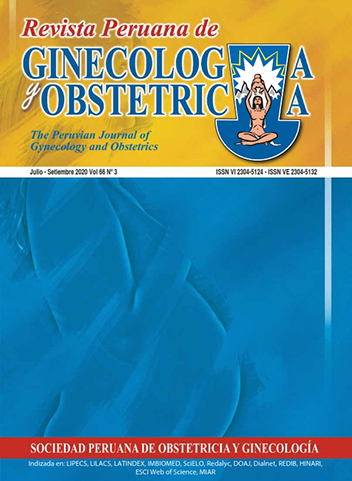Family planning in women of an educational institution in the City of Popayán, Colombia
DOI:
https://doi.org/10.31403/rpgo.v66i2260Keywords:
Family planning, Contraception, Contraceptive agentsAbstract
Introduction: At least 200 million women worldwide do not have access to family planning services despite the fact that conditions related to pregnancy, childbirth and the puerperium constitute one third of morbidity and mortality in women of reproductive age. Objective: To determine contraceptive practices in women of an educational institution in the city of Popayán, Colombia. Methods: A crosssectional study was conducted in 204 women, to whom a structured questionnaire was applied according to the variables measured. Results: Approximately 90% of the participants reported active sex life, 59% had a stable partner and 53% were currently family planning, while 21% mentioned having interest in conceiving. The most common family planning method was the condom, followed by oral contraceptives and injectable hormones. Conclusions: In the population studied, receptivity to contraceptive methods was limited. In contrast to the available literature, these practices were influenced by the sociodemographic characteristics of each population, being different among sociocultural contexts.Downloads
Download data is not yet available.
Downloads
Published
2020-11-06
How to Cite
Martínez Meza, Y. E., Solano Latorre, L. C., Banguera Riascos, H., Joaquí Samboní, W. G., Díaz Ordoñez, J. C., Garzón Portilla, M. C., & Peña Desmoineaux, M. (2020). Family planning in women of an educational institution in the City of Popayán, Colombia. The Peruvian Journal of Gynecology and Obstetrics, 66(3). https://doi.org/10.31403/rpgo.v66i2260
Issue
Section
Artículos Originales
















